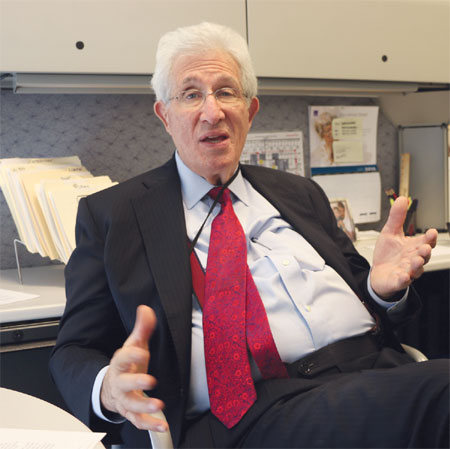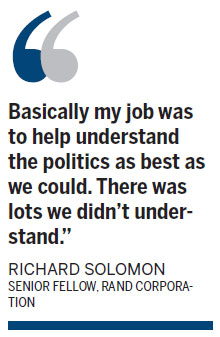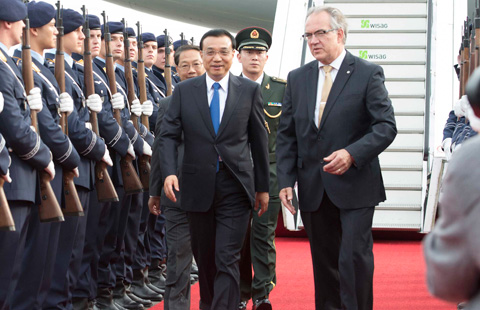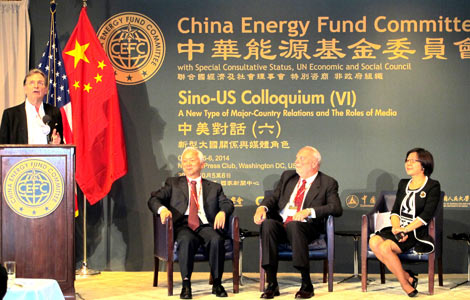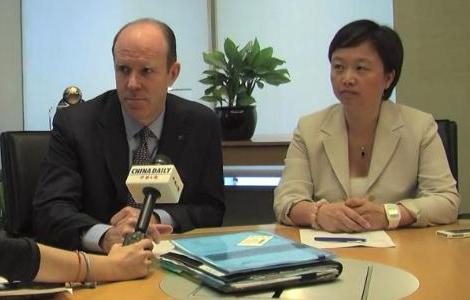A lifetime understanding China politics
Updated: 2014-09-19 12:12
By Chen Weihua in Washington(China Daily USA)
|
||||||||

|
Richard Solomon talks to China Daily on Tuesday in his office at the Rand Corporation in Arlington, Virginia. Chen Weihua / China Daily |
At 77, veteran China hand Richard Solomon is working on a grand strategy for the United States, trying to figure out its role in the 21st century.
There is a host of very different challenges now compared with the Cold War era, everything from nuclear proliferation and cyber security to climate change and a food crisis.
Solomon, now a senior fellow at the Rand Corporation, a think tank, realized that many Americans since WWII just want to stay home and not bear the responsibility of a world leader. But, he said, that US leadership role is inevitable.
The rising China may be a factor in the grand strategy. But to Solomon, China and the US are not in a strategic rivalry, such as competing for the support of North Korea. "We want you to have North Korea, it's a pain in the neck for everybody," he said jokingly.
Strategic ambiguity
However, Solomon does think there is a strategic ambiguity in the bilateral relations between the world's two largest economies. Vast common interests aside, the distrust and differences are obvious, as China sides more often with Russia in the United Nations Security Council than with the US, and many Chinese, especially in the military, still see the US as a threat.
Solomon is deeply worried about the growing tensions in both the South and East China seas. "The reason I am pessimistic is because I see things heading towards the direction of confrontation," he said.
Like what his old boss Henry Kissinger stated in the latest book World Order, Solomon believes that China should work with the US for a Pacific partnership where there is no hegemonic power, either China or the US.
"The two share fundamental interests in security and economic development and social development. Shouldn't they work together instead of confrontation?" he asked.
"To me, both sides should work together in a cooperative way," he said, citing his experience in the Cambodia peace settlement in 1991 by working cooperatively with the Chinese. Solomon, who was then US assistant secretary of state for East Asian and Pacific affairs, led the US negotiation team for the 1991 Cambodia Peace Treaty which ended 21 years of conflict in the Southeast Asian nation.
Solomon agreed that managing differences between China and the US is no easy job. "This gets to politics. We don't fully understand Chinese politics," he said.
Most Viewed
Editor's Picks

|

|

|

|

|

|
Today's Top News
Premier pushes innovation on German visit
Beijing to keep the lid on air pollution for APEC
Li arrives in Germany, first leg of Europe trip
China's economy surpasses US
IMF: Shadow banking filling gaps
China's status prominent at 'Big Four' firm Ernst & Young
US Ebola patient dies
China's role grows in Gates Foundation tech push
US Weekly

|

|
